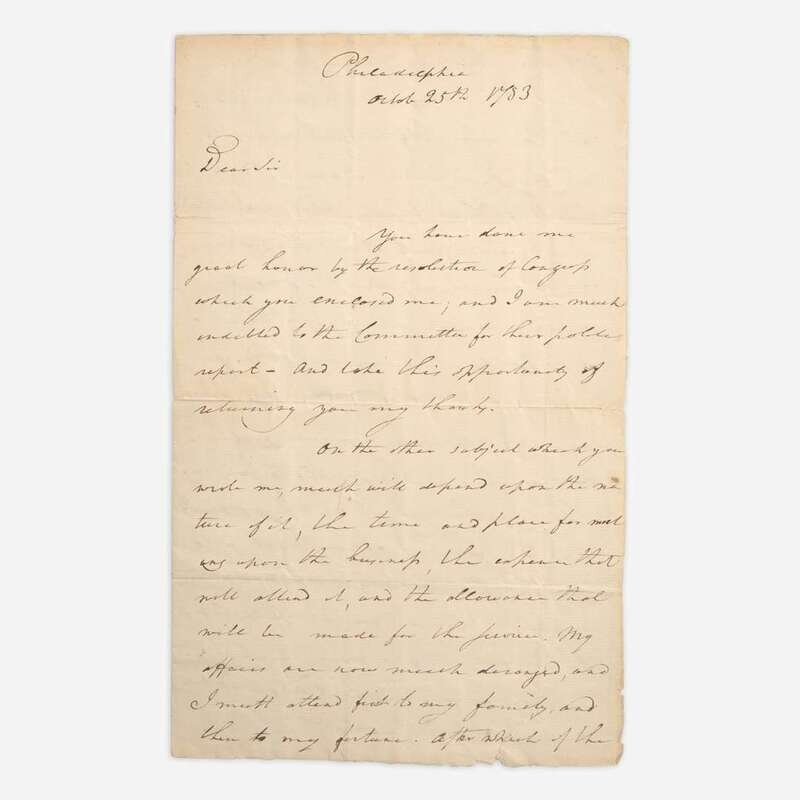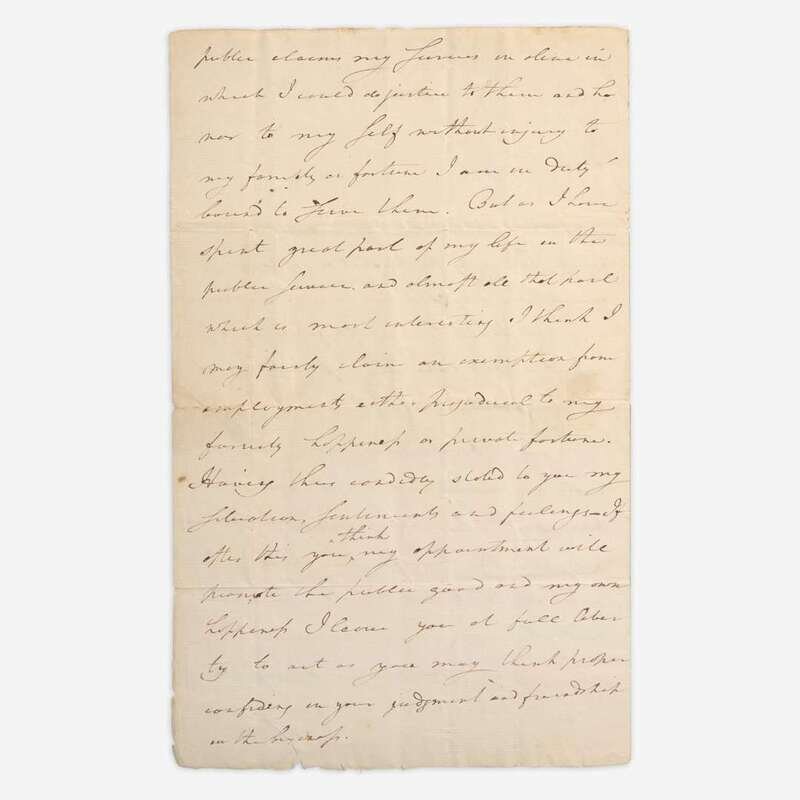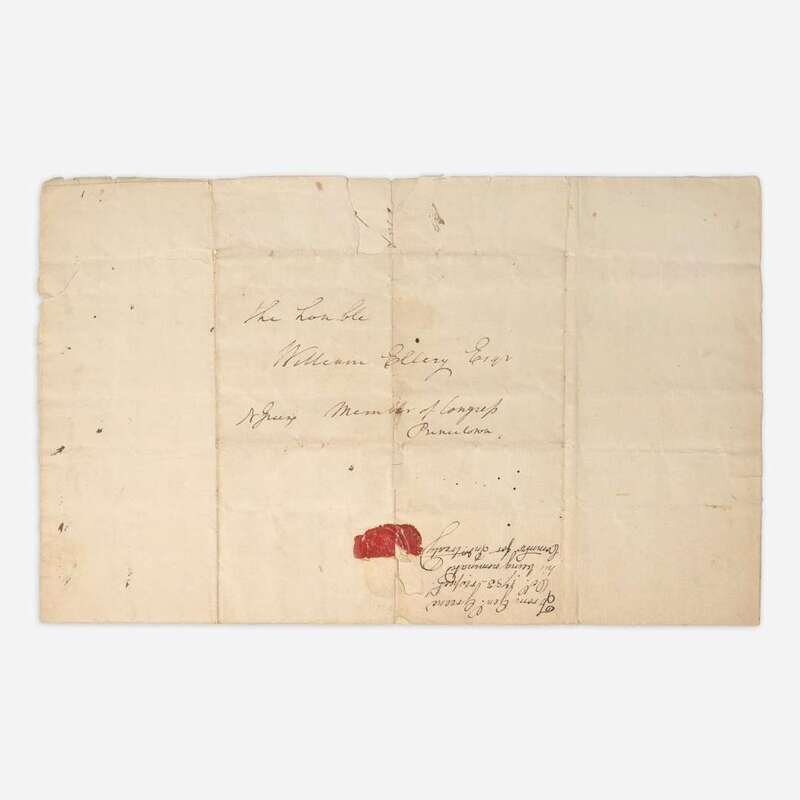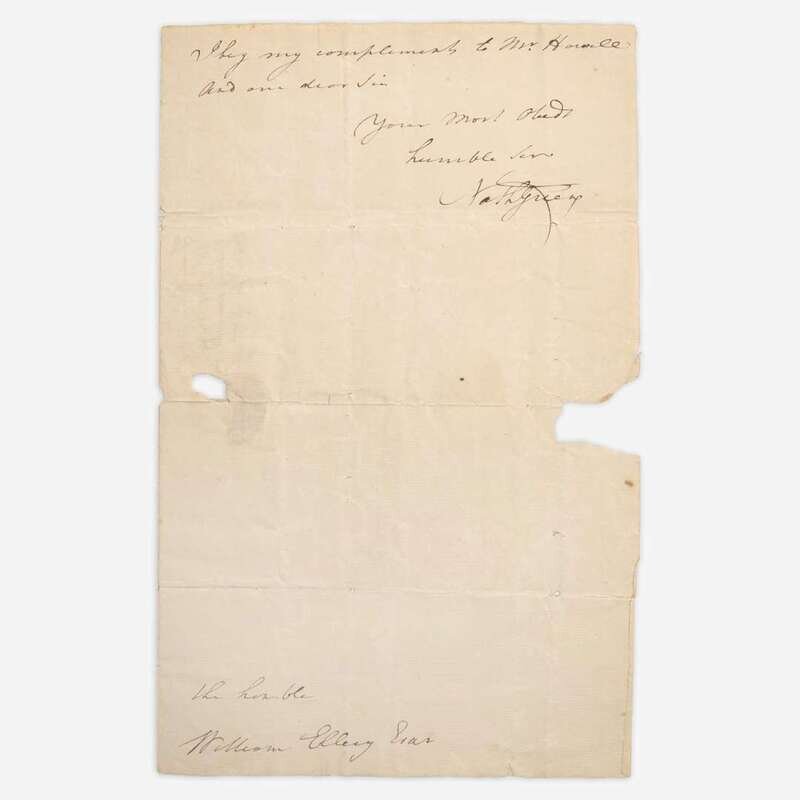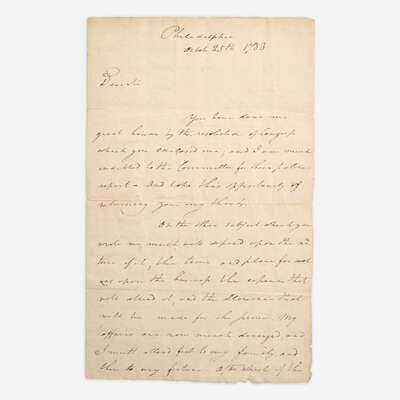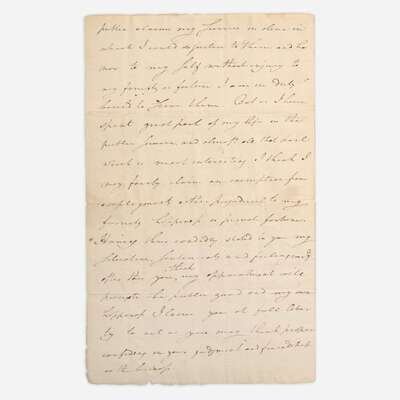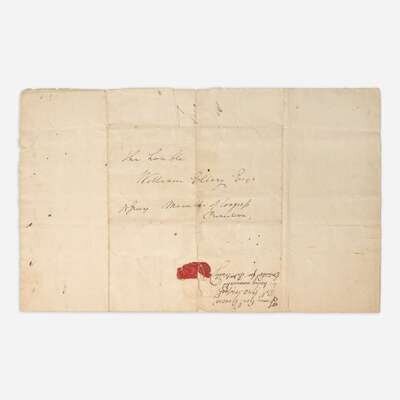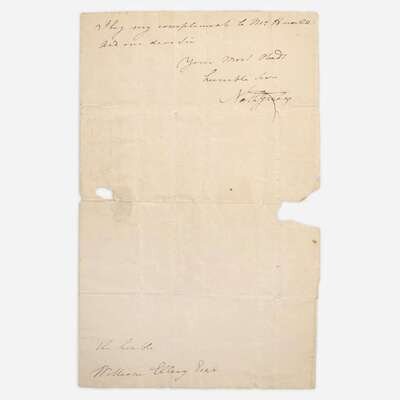Condition Report
Contact Information
Lot 12
Lot Description
General Nathanael Greene declines an appointment to serve as an Indian Commissioner in the Northwest Territory
Philadelphia, October 25, 1783. One sheet folded to make four pages, including integral address leaf, 13 1/2 x 8 1/4 in. (343 x 209 mm). Autograph letter, signed by Greene to Rhode Island Signer of the Declaration of Independence, William Ellery (1727-1820), declining an appointment as an Indian Commissioner in the Northwest Territory; integral autograph address leaf, free franked and signed by Greene; docketed to same; original red wax seal partially intact, loss opposite same from when opened; creasing from original folds, scattered separations along same. Lot includes an engraved image of Greene.
"Dear Sir
You have done me great honor by the resolution of Congress which you enclosed me; and I am much indebted to the Committee for their polite report--and take this opportunity of returning you my thanks.
On the other subject which you wrote me, much will depend upon the nature of it, the time and place for meeting upon the business, the expense that will attend it, and the allowance that will be made for the service. My affairs are now much deranged, and I mustt (sic) attend first to my family, and then to my future. After which if the public claims my Service in aline in which I could do justice to them and honor to my Self without injury to my family or fortune I am in duty bound to serve them. But as I have spent great part of my life in the public Service and almost all that part which is most interesting I think I may fairly claim an exemption from employment either prejudicial to my family happiness or private fortune. Having thus cordially stated to you my situation, sentiments and feelings--if after this you think my appointment will promote the public good and my own happiness I leave you at full liberty to act as you may think proper confiding in your judgment and friendship in the business.
I beg my compliments to Mr. (David) Howell And am dear Sir
Your most obedt
humble Ser.
Nath Greene"
Less than two months following the signing of the Treaty of Paris that officially ended the American Revolution, Nathanael Greene declines a Congressional appointment to serve as an Indian Commissioner in the Northwest Territory. With his finances in a shambles following the war, Greene resolved to retire from public life after years of service, and instead spend time with his family and get his financial affairs in order. During the Revolution, Greene pledged much of his own fortune to support his army's needs, but by war's end he was bankrupt. After selling his property in Rhode Island, he moved south to Georgia, where the state gifted him an estate, Mulberry Grove, that had been confiscated from a Loyalist.
Under the terms of the Treaty of Paris, the British ceded to the United States a vast swathe of western, Native American-occupied, land, stretching north from the Ohio River to the Great Lakes, and west to the Mississippi River. Encompassing almost 300,000 square miles, Congress was determined to sell this land to settlers to raise much needed government revenue. In order to avoid conflict with indigenous tribes that lived on the land and used it as a hunting ground, Congress began efforts to broker treaties with these tribes, and created a five-man Indian Commission to oversee the process. Besides Greene, the other appointees were George Rogers Clark, Oliver Wolcott, Richard Butler, Stephen Higginson, and later, Philip Schuyler. Along with Greene, Higginson also declined the appointment, and they were replaced by Benjamin Lincoln and Arthur Lee.
